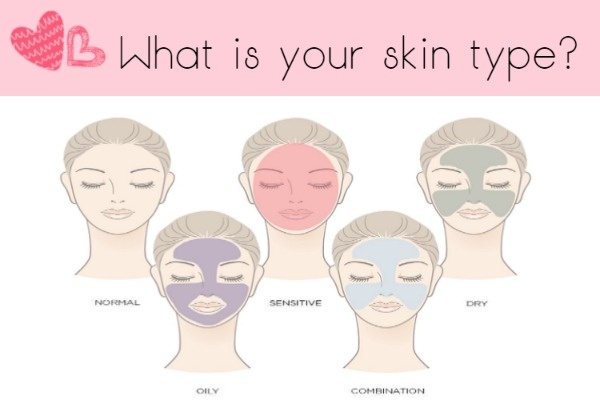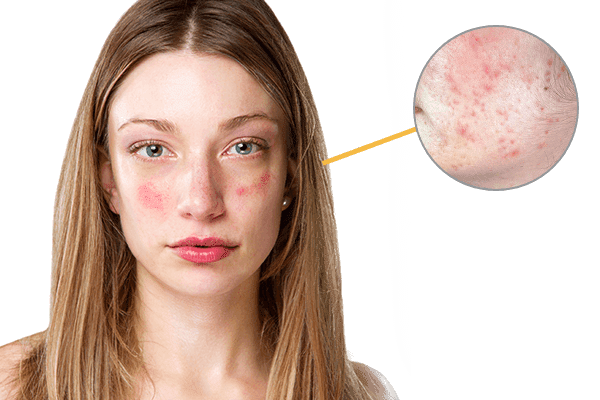Defining skin type – the first step to get a perfect skin

Identifying skin type is an important yet easily overlooked component in building a daily skincare routine. People who are ‘newbies’ and about to choose their first own products should not underestimate the importance of learning their skin, which help to find products that work best on each skin type.
The best way to define skin type correctly is contacting a dermatologist or pharmacist. However, most people can easily determine their skin conditions by themselves, at home. Let’s take a quick check to find out your skin type:
1. Five basic skin types:
Normal skin:
This term is used to describe skin that:
-
Has radiant and healthy complexion with smooth texture
-
Neither too oily nor too dry
-
Shows few or no imperfections (acnes, pimples, blackheads,…)
-
Has no severe sensitivity

TIPS: It is a luck to own this skin type, since it does not have any severe problems. It is far easier to develop a skincare routine for this type: follow a 4 basic steps routine is enough. You also can try new products without worrying much about irritating.
Oily skin:
This type of skin may have:
-
Greasy and shiny looking
-
Enlarged pores
-
Excessive oil in T-zone (forehead, nose and nose wings, chin)

TIPS: Use blotting papers to control oil, but do not overuse it since your skin may secrete more oil as a compensation for the lost oil. Washing your face no more than twice a day, using a gentle facial cleanser. Another key point is avoid products labeled “comedogenic” as it will clog the pores and cause acne. An oil-free or gel moisturizer is the best choice for this skin type.
Dry skin:
It may shows up as:
-
Rough and flaky skin
-
More invisible lines and wrinkles
-
Easy to crack, especially during dry and cold weather

TIPS: Stay far away from deodorant soaps and facial cleanser containing scrub, use a gentle and pH-balanced one instead. Make sure that you use a rich cream to provide enough moisture for your skin, and a humidifier indoor may be useful to maintain air humidity.
Sensitive skin:
It is prone to:
-
Redness
-
Itching
-
Irritating
-
Frequent rashes and bumps

TIPS: Pay attention to irritants when choosing skincare products. Alcohol Denat, Sodium Lauryl Sulfate (SLS)/Sodium Laureth Sulfate (SLES), Parabens or fragrance are some of popular irritants likely causing skin problems that you should avoid when purchasing products.
Combination skin:
In fact, this is the most popular type among all skin types. This one is a mix of other types. You may find it hard to figure out your own skin type. It is oily in certain areas, such as T-zone, while dehydrated in others as cheeks . Besides, your skin may have a few more problems such as acne-prone or sensitive.

TIPS: As this type is a mix of different types, each area needs its own care. Thoroughly cleanse oily areas such as T-zone, and carefully moisturize and hydrate dry areas. Relying on the need of each part to choose proper products is the key to take care of combination skin.
2. A few important notes:
-
Actually, skin types are changeable. It depends on climate, treatment, diseases, life style and other factors.
-
It is really hard to find out your own perfect skincare routine. You may try tons of products to see which one work best on your skin.
-
A product which is effective for others does not mean it is also effective for you, as each person has their own skin condition.
-
Do not have high expectations of advertisements. Their claims are not always reliable, and it may takes a lot of time to see desired results.
